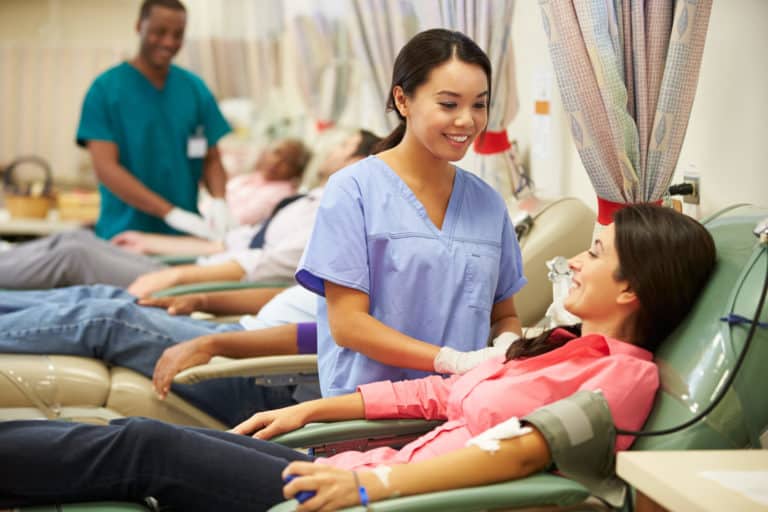A new Allogeneic CAR-T study has shown CAR-T cells derived from healthy donors to be superior at fighting cancer compared to CAR-T cells derived from patients. [1]
In a press release, biotechnology company Allogene Therapeutics announced preclinical results from their study on the treatment of multiple myeloma using allogeneic CAR-T cell therapy. Multiple myeloma is a type of cancer caused by the malignant proliferation of plasma cells in the bone marrow.
The company is developing a new cancer immunotherapy treatment based on CAR-T cells. However, as the report explains, one crucial part of this novel treatment will be significantly different from currently approved CAR-T cell therapies.
Allogeneic CAR-T Cell Therapy Using Cells From Healthy Donors
Early cancer immunotherapies were developed as part of the drive toward personalized medicine. The basic premise behind these autologous therapies is that a cancer patient’s own immune cells are harvested and modified to treat their disease, thus circumventing the risk of provoking a potentially dangerous immune response. Autologous therapies have proven very effective in the fight against cancer, and FDA approved therapies such as KymriahTM and YescartaTM have had overwhelmingly positive results. Nevertheless, starting material for these therapies is scarce, and many scientists now believe that the real future of cancer immunotherapy lies in allogeneic treatments.
Allogeneic CAR-T cell therapy uses cells from healthy donors rather than taking cells from the patient. Supply companies are responsible for ensuring that donors are screened and characterized to provide starting materials that best fit the intended use. The obvious benefits to sourcing from healthy donors are that immune cells are more abundant, much easier to source, and cells can be processed ahead of time, so that treatment is available when needed. This new study, however, shows that the benefits of using healthy donors may be even more profound.
For their study, Allogene Therapeutics researchers generated CAR-T cells targeting B cell maturation antigen (BCMA). BCMA is a protein highly specific to and widely expressed on multiple myeloma cells. Previous CAR-T cell therapy studies targeting BCMA have been promising [2], yet some patients still relapse. It is thought that part of the reason is that patient derived T cells have impaired fitness and poor persistence.
Sourcing T Cells
T cells for the current preclinical study were sourced from either young healthy donors, or tissue from patients with multiple myeloma at different stages of disease. In immune cell characterization studies, healthy donors showed increased T-cell counts, a higher CD4/CD8 ratio, and an expanded naïve T-cell population compared with multiple myeloma patients. Once CAR-T cells were manufactured from each donor group, further differences were documented. CAR-T cells derived from healthy donors had higher overall functionality than CAR-T cells derived from patients, with increased expansion capabilities and improved cytotoxic activity against multiple myeloma cells in vitro. Healthy donor-derived CAR-T cells also demonstrated a higher transduction rate, an increased proportion of memory cells, and superior long-term in vitro activity compared to CAR-T cells generated from relapsed multiple myeloma patients.
Clinical trials of anti-BCMA CAR-T cell therapy are ongoing, and there is still some progress to be made before allogeneic cell therapies go mainstream. Researchers need to assure that the safety profile for allogeneic CAR-Ts is equivalent to or better than that for autologous treatment. At Excellos, we understand that in-depth donor characterization and meticulous quality control form the foundation of successful cell therapies. Please contact us and learn more about our allogeneic CAR-T related products.
Reference
- Metelo M., et al. (2022) Allogeneic Anti-BCMA CAR-T Cells Are Superior to Multiple Myeloma-derived CAR-T Cells in Preclinical Studies and May Be Combined with Gamma Secretase Inhibitors. Cancer Research Communications 2, (3): 158–171. https://doi.org/10.1158/2767-9764.CRC-21-0157
- Roex, G., et al. (2020). Safety and clinical efficacy of BCMA CAR-T-cell therapy in multiple myeloma. Journal of hematology & oncology, 13(1), 164. https://doi.org/10.1186/s13045-020-01001-1

